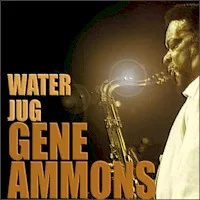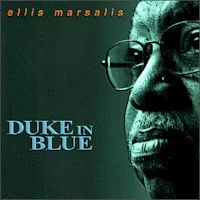Bitrate: MP3@320K/s
Time: 37:32
Size: 85.9 MB
Styles: R&B, Vocal jazz
Year: 1977/2016
Art: Front
[5:45] 1. That's Enough For Me
[4:11] 2. Little Baby
[4:53] 3. I Just Want To Know
[4:32] 4. Havana Candy
[4:39] 5. Golden Oldies
[4:27] 6. I Need Somebody
[3:59] 7. We're In Love
[5:01] 8. Lost In The Stars
CTI was having its troubles financially at the time. They recycled arrangements for all their artists and limited their budgets. Austin sang this undistinguished material with as much conviction as she could muster, but the general pallid air lingering over the production also affected her vocals. ~Ron Wynn
Havana Candy
Album: For Ella
Bitrate: MP3@320K/s
Time: 46:02
Size: 105.4 MB
Styles: R&B, Vocal jazz
Year: 2002
Art: Front
[3:57] 1. Too Close For Comfort
[4:13] 2. Honey Suckle Rose
[4:21] 3. (You'll Have To Swing It) Mr. Paganini
[5:28] 4. Our Love Is Here To Stay
[2:49] 5. A Tisket A Tasket
[4:00] 6. Miss Otis Regrets
[3:29] 7. Hard Hearted Hannah
[3:53] 8. But Not For Me
[2:53] 9. Satin Doll
[3:29] 10. The Man I Love
[2:53] 11. Hearing Ella Sing
[4:32] 12. How High The Moon
Patti Austin is well qualified to record an album in the style of Ella Fitzgerald, having spent her career shadowing the paths taken by Fitzgerald and her contemporaries. Although she has worked in R&B-oriented adult pop much of the time, she is clearly in the tradition of Fitzgerald, and in 1988 she even recorded an album of standards that she tellingly titled The Real Me. For Ella easily could be the sequel to that collection. Austin traveled to Köln, Germany, to record a program of songs associated with Fitzgerald with the WDR Big Band conducted by Patrick Williams. Many of the songs, of course, are just ones Fitzgerald happened to sing but that have broader associations as well, such as George & Ira Gershwin's "Our Love Is Here to Stay" and "The Man I Love," though others, such as "A Tisket a Tasket," inevitably evoke Fitzgerald. Austin does not, for the most part, attempt to sing in Fitzgerald's style, giving listeners her own interpretations that, in Williams' neo-swing arrangements, nevertheless hark back to the 1950s. That's fine for the most part, though the version of "Miss Otis Regrets," which treats it as a gospel performance in the manner of Mahalia Jackson, without the slightest touch of humor, is a misstep. On two occasions, Austin does copy Fitzgerald, re-creating the scat sections of "You'll Have to Swing It (Mr. Paganini)" and "How High the Moon." That obviates the problem of having to compete with Fitzgerald on her greatest improvisational triumphs, but it's a technical achievement of an odd sort. Austin is better off putting her own stamp on the songs; that she does very well. ~William Ruhlmann
For Ella





















